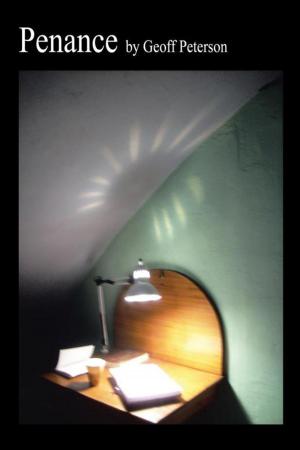| Author: | Sayyid Hussein Alamdar | ISBN: | 9781496917324 |
| Publisher: | AuthorHouse | Publication: | September 17, 2014 |
| Imprint: | AuthorHouse | Language: | English |
| Author: | Sayyid Hussein Alamdar |
| ISBN: | 9781496917324 |
| Publisher: | AuthorHouse |
| Publication: | September 17, 2014 |
| Imprint: | AuthorHouse |
| Language: | English |
During his retirement Imam Ali (AS) devoted himself to the study of the Masters percepts by the light of reason. But for his assassination, to quote the language of a French historian, the Muslim world might have witnessed the realization of the Prophets teaching, in the actual amalgamation of Reason with Law, and the impersonation of the first principles of true philosophy in positive action. The same passionate devotion to knowledge and learning which distinguished the Holy Prophet Muhammad (SAW) breathed in every word of his Disciple. With a liberality of mind-for beyond the age in which he lived-was joined a sincere devoutness of spirit and earnestness of faith. His sermons, faithfully preserved by one of his descendents, and his litanies or psalms, portray a devout up looking toward the Source of All Good, and an unbounded faith in humanity. The accession of the Umayyad to the ruler ship of Islam was a blow to the progress of knowledge and liberalism in the Muslim World. Their stormy reigns left the nation little leisure to devote to the gentler pursuits of science; and to this, among the sovereigns, was joined a characteristic idolatry of the past. Their thoughts were engrossed by war and politics. During the comparatively long rule of a century, the House of Umayyad produced only one man devoted to the cultivation of letters; and this man was Abu Hashim Khalid ibn Yezid-the philosopher of the Merwanian family-as he has been called, who was set aside from the succession on account of his learning. The jealous suspicion and the untiring animosity of the children of Abu Sufian and Hind had obliged the decedents of the Holy Prophet (SAW) to live a life of humble retirement. In the night of misery and unhappiness, they followed truly and faithfully the percepts of their ancestor, and found consolation in intellectual pursuits. -Radiance of Vicegerency, p-185.
During his retirement Imam Ali (AS) devoted himself to the study of the Masters percepts by the light of reason. But for his assassination, to quote the language of a French historian, the Muslim world might have witnessed the realization of the Prophets teaching, in the actual amalgamation of Reason with Law, and the impersonation of the first principles of true philosophy in positive action. The same passionate devotion to knowledge and learning which distinguished the Holy Prophet Muhammad (SAW) breathed in every word of his Disciple. With a liberality of mind-for beyond the age in which he lived-was joined a sincere devoutness of spirit and earnestness of faith. His sermons, faithfully preserved by one of his descendents, and his litanies or psalms, portray a devout up looking toward the Source of All Good, and an unbounded faith in humanity. The accession of the Umayyad to the ruler ship of Islam was a blow to the progress of knowledge and liberalism in the Muslim World. Their stormy reigns left the nation little leisure to devote to the gentler pursuits of science; and to this, among the sovereigns, was joined a characteristic idolatry of the past. Their thoughts were engrossed by war and politics. During the comparatively long rule of a century, the House of Umayyad produced only one man devoted to the cultivation of letters; and this man was Abu Hashim Khalid ibn Yezid-the philosopher of the Merwanian family-as he has been called, who was set aside from the succession on account of his learning. The jealous suspicion and the untiring animosity of the children of Abu Sufian and Hind had obliged the decedents of the Holy Prophet (SAW) to live a life of humble retirement. In the night of misery and unhappiness, they followed truly and faithfully the percepts of their ancestor, and found consolation in intellectual pursuits. -Radiance of Vicegerency, p-185.















